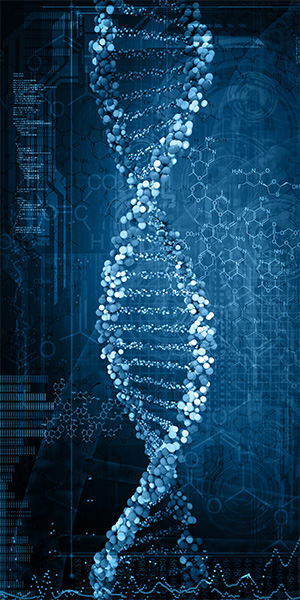Science 8
MINISTRY CODE: MSC–08
View the complete Learning Standards for this course here: Science 8
The goal of Science 8 is to help students build and connect their understanding of science in the context of everyday life while focussing on both curricular competencies and content. Students will be provided with the necessary framework to become scientifically literate through delving into the following topics: physics, biology, earth science and chemistry.
MODULE 1: Physics
Lessons:
- Lesson 1: The Nature of Light
- Lesson 2: Electromagnetic Spectrum: Visible Light
- Lesson 3: Electromagnetic Spectrum: Non-Visible Light
- Lesson 4: Light Travels in a Straight Line
- Lesson 5: Light Can Be…
- Lesson 6: Getting in Light’s Way
- Lesson 7: Plane Mirrors
- Lesson 8: Concave Mirrors
- Lesson 9: Convex Mirrors
- Lesson 10: Mirror Lab
- Lesson 11: Prisms
- Lesson 12: Convex Lenses
- Lesson 13: Concave Lenses
- Lesson 14: Lenses Lab Activity
- Lesson 15: Human Vision
- Lesson 16: Optical Devices
- Lesson 17: Unit Project
- Lesson 18: Build and Test Your Camera
- Lesson 19: Analyze Your Images
Assignments:
- Wavestown Assignment
- How Does the Electromagnetic Spectrum Affect Me?
- Mirror Lab Activity
- Prisms Worksheet
- Venn Diagram
- Lenses Lab
- A Play by Play Account
- Optical Devices Report
- Pinhole Camera
Quizzes:
- Physics Quiz #1
- Physics Quiz #2
MODULE 2: Biology
Lessons:
- Lesson 1: What Defines Life?
- Lesson 2: The Cell
- Lesson 3: Scientific Modeling
- Lesson 4: Cell Theory
- Lesson 5: Prokaryotic and Eukaryotic Cells
- Lesson 6: Animal Cells
- Lesson 7: Plant Cells
- Lesson 8: Cellular Respiration
- Lesson 9: Photosynthesis
- Lesson 10: Diffusion and Osmosis
- Lesson 11: Cell Project 1
- Lesson 12: Cell Project 2
- Lesson 13: Micro-Organisms
- Lesson 14: The Immune System
- Lesson 15: Your Defense
- Lesson 16: Viruses and Bacteria
- Lesson 17: Vaccines
- Lesson 18: Antibiotics
- Lesson 19: Epidemics and Pandemics
Assignments:
- The EggCellent Lab
- Journal Response #1
- Fermentation Short Lab
- The Writing is in the Grass Lab
- Cell Model Project
- Journal Response #2
- Journal Response #3
- Journal Response #4
- Journal Response #5
- Journal Response #6
Quizzes:
- Biology Quiz #1
- Biology Quiz #2
- Biology Quiz #3
MODULE 3: Earth Science
Lessons:
- Lesson 1: Layers of the Earth
- Lesson 2: Piecing the Puzzle
- Lesson 3: The Ocean Floor
- Lesson 4: Introduction to Tectonic Plates
- Lesson 5: Divergent Boundaries
- Lesson 6: Convergent Boundaries
- Lesson 7: Transform Fault Boundaries and the Movement of Plates
- Lesson 8: Earthquakes: The Effects
- Lesson 9: Earthquakes at the Three Different Types of Boundaries
- Lesson 10: Plotting Earthquake Data – North America Map & List of Earthquakes
- Lesson 11: Earthquakes – Seismic Waves and Aftershocks
- Lesson 12: Tsunamis
- Lesson 13: Volcanoes – The Effects
- Lesson 14: Volcanoes at Divergent and Convergent Boundaries
- Lesson 15: Major Canadian Geographical Events
- Lesson 16: What About British Columbia?
- Lesson 17: First Peoples and the Earth
- Lesson 18: Recent Events
- Lesson 19: How to Be Prepared
Assignments:
- Email to the Prime Minister (#1, #2 and #3)
- Survivors of Traumatic Events
- How Can You Be Prepared?
- The Prime Minister’s Speech
Quizzes:
- Earth Science Quiz #1
- Earth Science Quiz #2
MODULE 4: Chemistry
Lessons:
- Lesson 1: Introduction
- Lesson 2: Matter, Atoms and Democritus
- Lesson 3: Art Gallery: Democritus
- Lesson 4: Investigation Design
- Lesson 5: John Dalton
- Lesson 6: Art Gallery – Dalton
- Lesson 7: Chemical Phases
- Lesson 8: Kinetic Molecular Theory (KMT)
- Lesson 9: Investigation
- Lesson 10: J.J. Thomson
- Lesson 11: Art Gallery – J.J. Thompson
- Lesson 12: Rutherford
- Lesson 13: Art Gallery – Bohr
- Lesson 14: Ions and Isotopes
- Lesson 15: Writing in Science
- Lesson 16: Einstein
- Lesson 17: Investigation Analysis
- Lesson 18: Schrodinger and Heisenberg
- Lesson 19: Final Presentation
Assignments:
- Investigation (Part 1, 2 & 3)
- Chemical Phase Modeling
- Food Modeling Assignment
- Expose
- Brownian Motion Conclusion
- Art Gallery Presentation
Quizzes:
- Chemistry Quiz #1
- Chemistry Quiz #2
Module 4 Test
ASSESSMENT
- First Assignment 5%
- Quizzes 15%
- Activities and Labs 25%
- Projects 75%
Required Resources: a computer with internet access and headphones/speakers. A scientific or graphing calculator.

